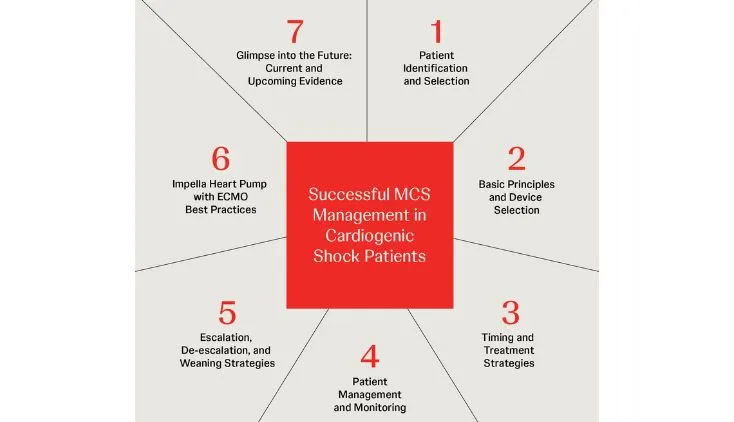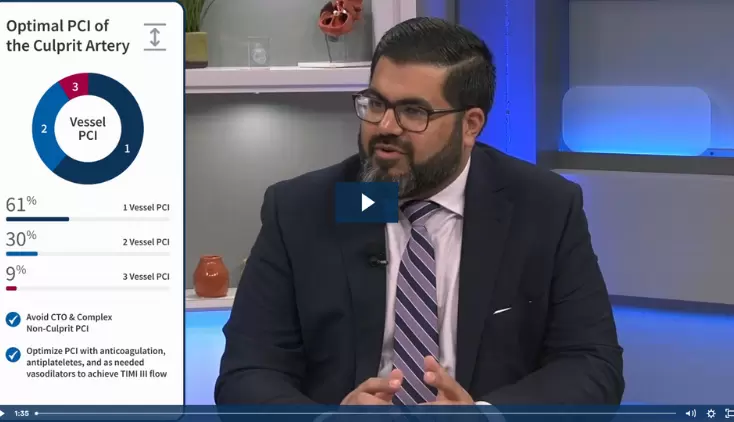Patient Management, AMI Cardiogenic Shock
Thursday Night Live: Putting the “I” Back in Team – Impella® Management in the ICU
Learn more about how to care for patients with cardiogenic shock. Viktoriya Kagan, AGACNP-BC, CCRN, and Eddy Gutierrez, MD, describe patients in cardiogenic shock in the intensive care unit (ICU), discuss patient management strategies, and explain best practices for Impella® System management.
Viktoriya Kagan, director of the cardiogenic shock program and APP manager at the Heart and Vascular Center in Chicago, IL, discusses the cardiogenic shock pathway developed at the University of Chicago. She explains how they used electronic medical records to create an algorithm to help identify patients who may have cardiogenic shock and guide management of these patients. Once patients are assessed and confirmed to be in shock, a multidisciplinary shock call occurs. Kagan also reviews potential treatment options for these patients, including types of mechanical circulatory support (MCS).
Dr. Gutierrez, an intensivist and medical director of the CCU and CVICU at Baptist Medical Center in Jacksonville, FL, emphasizes, “once you have your diagnosis of cardiogenic shock, you need to get moving, and get moving fast.” He explains that for every 1-hour delay in escalating patients to the support they need, there is a 9.9% increased risk of death in these patients. Dr. Gutierrez explores how to escalate support and describes the benefits of a pulmonary artery (PA) catheter in these patients. He explains that cardiac power output (CPO) is the “strongest independent hemodynamic correlate of in-hospital mortality” and that pulmonary artery pulsatility index (PAPi) is key to understanding right heart function. He walks through the elements of a protocol to help guide management of patients in cardiogenic shock and provides data supporting the use of protocols to reduce mortality and increase the likelihood of native heart recovery.
Dr. Gutierrez also describes the serial labs, daily labs, and daily imaging that are part of caring for patients in cardiogenic shock in the ICU and he highlights the importance of weaning vasopressors and inotropes. In addition, he discusses potential Impella complications to watch for, when to escalate MCS, and how to de-escalate support and wean patients. He concludes with some patient success stories.
NPS-3617


